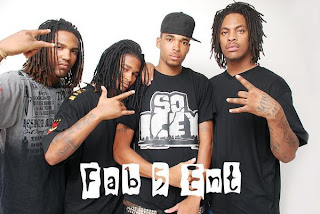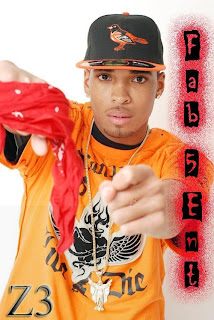There is a cruel inclination in me not to feel shock or much remorse for Slim Dunkin,’ the young Atlanta-based rapper who was gunned down this weekend.
As unfortunate as it was for Mario Hamilton, the rapper’s real name, to lose his life, I cannot help but feel that the violence he promoted so creatively in his music gave every indicator he would die a most violent death.
Take his music video “I Gotta Eat,” for example. The opening scenes are of he and a crew of masked men sticking up a couple walking through a project thoroughfare.
“A Yo! Lemme run these n—-s pockets B,” is heard in the backdrop in the soundtrack. Soon after, a swaying Slim Dunkin appears, standing in the same spot where the reenacted stick-up took place singing the most violence-laced lyrics.
“Black gloves, black mask, I gotta eat n—a,”
“I’ll do anything for the cash, I gotta eat n—a.
“Body parts in the trash, I gotta eat n—a.”
The rapper’s songs are a discography of violence, sex and the most degenerate aspects of society. “Dunk/Same Shyt,” another rap video of his, shows him sticking up rival drug dealers. “Man Down,” boasts of how easily Slim Dunkin and his partners in crime claim they can take a life. Given all of this, should we really be shocked that he met his death with a single gunshot wound to the chest? If it sounds harsh, it shouldn’t.
Slim Dunkin’s videos remind me of the thugs who infested my west side Detroit community with their gun-totting bravado, indifference to elders, and utter disrespect to the decent girls who aspired to be more than video vixens. He reminds me of the U.S. Justice Department’s recent study that reports, between 1980 and 2008, the homicide victimization rate of blacks is six times higher at (19.6 homicides per 100,000) than the rate for whites (3.3 homicides per 100,000).
Slim Dunkin also reminds me of a series of stories my hometown newspaper, Detroit Free Press, published titled “Living with Murder.” The incredibly researched series dove into the trends and problems of violence that plagues America’s biggest African American city. More than 300 people have died as a result of homicide in Detroit this year alone. An alarming number for a city of 713,000 residents.
Just as the couple in the “I Gotta Eat” video were minding their own business before being robbed, DeMonté Thomas of Detroit was a real life instance of senseless violence the series cited. Thomas was killed in 2010 going to a barber shop by men who police suspect was after the man the barber himself.
“He wasn’t a thug,” Mark Covington, a friend and neighborhood activist said of Thomas. “The discouraging part is that, talking to him, the dreams and the goals that he had. He wanted to raise his daughter. That’s all he thought about, that’s all he wanted to do was raise his daughter.”
Slim Dunkin, on the other hand, clearly profited from being thuggish. That he was a talent “on the rise” based on some accounts reveals how much our society values violence. Being from an extremely violent community, I could have easily been another DeMonté Thomas. As a 12-year-old, my house was stuck-up by a band of rival drug gangs of whom my own crack-dealing uncles feel out of favor. I remember the 357 Magnum pointing directly between my eyes as I sat on the floor praying they would not kill me or my grandmother. The robbers spared our lives.
I also remember the house across the street from my house that was burned down because of an on-going drug war. The victim was not the grown-up gangsters, but a little girl whose body was so badly burned, it reported fell apart when firemen recovered it. Violence, especially in the black community, is too serious an issue to propagate in music videos in the name of a record deal and a few thousand hits on YouTube.
Violence is no joke and if there can be anything learned or taken from Slim Dunkin’s unfortunate death is this: How long will we casually accept the violence that continues to take out our black men at inexcusable rates? And, to young, black artists: Is Slim Dunkin’s gangster-style of rap the kind of music by which they would want to be remembered?
A great rapper who comes to mind who died a violent death is Tupac Shakur. While scores of his songs featured violence-based narratives, Tupac, who died at age 25, is also remembered as a community activist and a lyricist whose intellectual acumen mirrored even some of his academically-trained critics. “Dear Moma,” an ode to his own mother, is as memorable as “Me and my girlfriend,” an ode to his hand gun. Would Slim Dunkin have grown out of his thuggish persona? We will never know.
He was 24-years-old. A young man, indeed. But, based on listening to how intensely he glorified violence in his music, can we truly say his fate was untimely? And I also wonder whether the violence in Slim Dunkin’s music attracted the violence that eventually claimed his life?
In all fairness, I do not know Slim Dunkin. And he may have been a decent person to those who knew him. But I do not have to have known. I know his image. It is something by which we all will be judged when we are six-feet-under. Slim Dunkin crafted a carefully designed image of a young man who epitomized the title of his recent mixtape, “Menace To Society.”
He was a man who gave every indication that he lived by the gun. Consequently, something deep inside compels my emotions not to be saddened or shocked that he died as a result of one.
Slim Dunkin Pictures - 1

Slim Dunkin Pictures - 2

Slim Dunkin Pictures - 3

Slim Dunkin Pictures - 4

Slim Dunkin Pictures - 5

Slim Dunkin Pictures - 6

Slim Dunkin Pictures - 7

Slim Dunkin Pictures - 8

Slim Dunkin Pictures - 9

Slim Dunkin Pictures - 10

Slim Dunkin Pictures - 11




































































